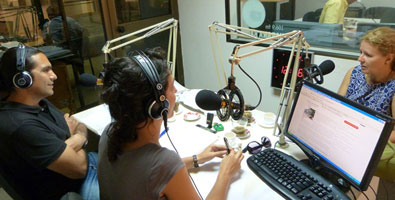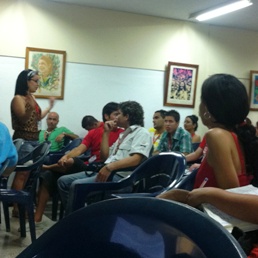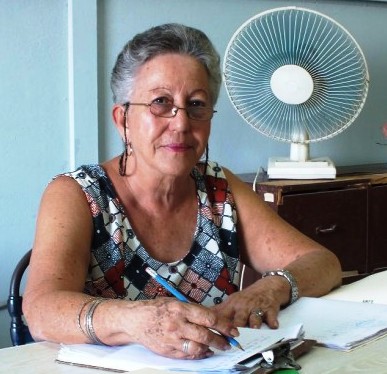Don Fernando Ortiz, the Cuban sage, said that to be Cuban having in Cuba the cradle and the bearing is not enough, you have to have the will and the conscience of wanting it to be. Jorge Mañach gave his opinion in his famous essay “Inquiry into Choteo” that among the characteristics of the Cuban are his detachment to the too solemn, his ingenuity and his comic visions.
Patria, said Martí, is “a community of interests, unity of traditions, unity of ends, a sweet and consoling fusion of loves and hopes.”
That fusion and identity awareness are lived in what we eat, in what we hear, in what we share and what we see; But naturally, it is also taught. This is the crucial level of the means, to make common, to enter like sap and encouragement of the majorities, the best in thought, voices, authority, art and attitudes.
Cuban identity is shaped by local identities, and Cuban broadcasting, with a privileged network of almost one hundred stations in more populated cities and smaller municipalities, is decisive in the recognition of these values.
No other medium has such an extension in Cuba. The radio expands the culture and leaves her memory.
The national is not the habanero. The national is what the whole nation produces. Havana, in any case, is the capital of the country and is not the country. When there is no real awareness of the nation in the diffusion and promotion of Cuban culture, it begins to make part of the spiritual wealth of the archipelago that we are invisible, the hierarchies are lost, the nearest is grasped, and space begins to be given In our media to mediocre products. And consequently, to popularize what does not deserve it.
What is not known is not wanted. Whenever an easy product is legitimized, with a selfish or discriminating philosophy in any sense, every time that the word is imposed on the preparation, every time we give margin to low-key evaluations, the identity suffers and the radio is lowered.
Radio counselling can never be an accomplice. It is up to the advisors and the program managers to be the filters so that on the radio can go the most notable proposals in musical matters, in interviews, in collaborators or dramatized.
That, of course, requires a solid preparation and a sustained will to be stimulated and concretized in the day to day. That was discussed at the last Caracol event convened by the Film, Radio and Television Section of the Union of Writers and Artists of Cuba (UNEAC), topics that, luckily, I have seen in other spaces. The debate is never infertile if it is done from the sincerity and in depth.
Researchers and artists also analysed and contributed ideas about the need to promote scientific and environmental knowledge on radio and television; As well as the damage caused by sound pollution and the proliferation of social indiscipline.
I cannot forget a musician of the stature of José Loyola saying that “Cuba has become a sonorous chaos”. Unfortunately, I subscribe to the statement.
The proliferation of noise and loud music in both state and private offerings has become a real epidemic in almost the entire country and, worst of all, the right solutions have not yet been found.
Hopefully these circumstances are never part of our national identity, which we do not get used to, but let’s not minimize its consequences. In this, radio and other media also have much to contribute to Cuban society: in showing, in proposing, in convincing, in demanding. It is an unavoidable role.
We must always return to Martí, to his beam of thought: “We must give the best the opportunity to reveal and prevail over the worst. If not, the worst prevails.”
Translated by ESTI





